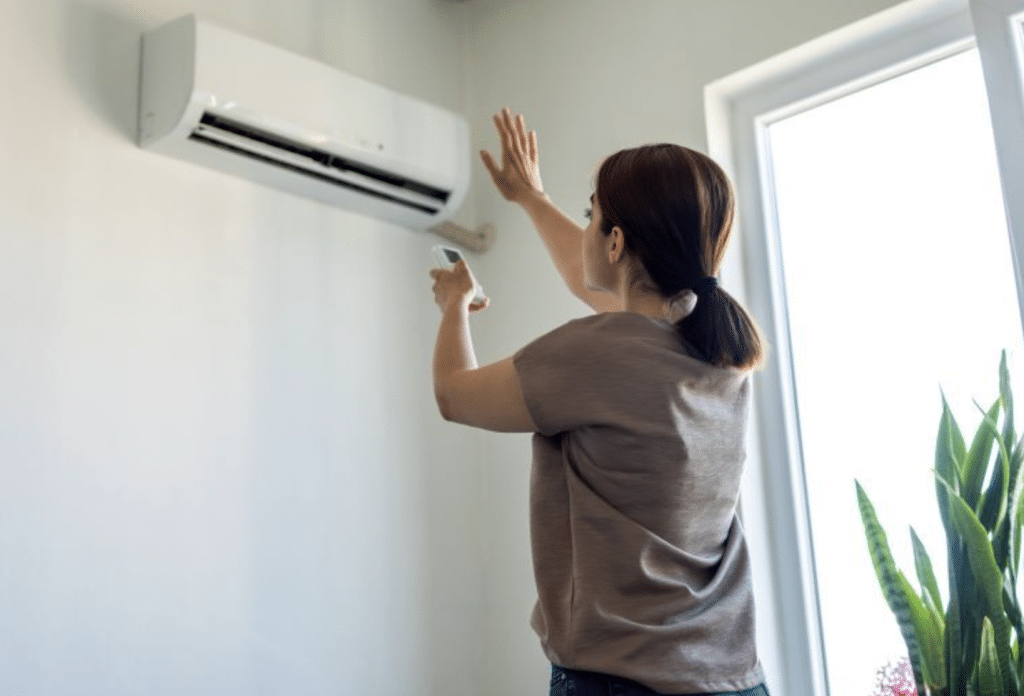Key Takeaways
- Understanding how efficient air conditioning systems can enhance home comfort and energy savings.
- Tips for choosing the right air conditioning unit and regular maintenance for optimal performance.
- Insight into the latest technologies and trends in home cooling.
The Importance of Efficient Air Conditioning Systems
An efficient air conditioning system is crucial for ensuring the comfort of your living environment, playing a significant role alongside natural cooling methods. During intense summer heat, these systems provide relief, creating a refuge from outdoor temperatures. However, their impact goes beyond cooling. Air conditioning systems also regulate humidity levels and filter pollutants, enhancing indoor air quality. This can be particularly beneficial for those with allergies or respiratory concerns, as a well-maintained HVAC system can significantly reduce airborne allergens and dust.
By optimizing your air conditioning, you can also experience impressive cost savings. Modern systems are not the energy hogs they once were; technological advancements have led to a new era of energy-efficient designs. These systems require less energy to maintain ideal home temperatures, reducing electricity bills.
Choosing the Right Air Conditioning System
Selecting an air conditioning system that fits your home’s specific needs can seem daunting, but it is worthwhile. Considerations should include the home’s square footage, the number of windows, and the house’s overall age and insulation efficacy. These elements considerably influence the performance and size of the system required. Energy efficiency should be paramount; systems with higher SEER ratings consume less power to cool the home, ultimately conserving energy and cutting operating costs. Regular maintenance also plays a critical role in sustaining efficiency—issues like clogged filters or refrigerant leaks can lead to performance drops. In regions with fluctuating weather, such as Illinois, air conditioning repair in Naperville is often sought to address these problems promptly and maintain system reliability.
Additionally, the U.S. Department of Energy offers insights into selecting energy-efficient systems. Their guidelines underscore the importance of choosing the right size unit to avoid issues like insufficient dehumidification or excessive cycling, which decrease efficiency and can shorten your system’s lifespan. Implementing these strategies optimizes performance and contributes to a sustainable environment by minimizing energy consumption.
Routine Maintenance for Long-lasting Performance
Longevity and system performance are two attributes directly related to consistent maintenance routines. Regular check-ups allow small issues to be addressed before they become major disruptions, saving you from unexpected repair costs. Homeowners can perform various maintenance tasks, such as replacing air filters every one to three months and cleaning debris from outdoor units. These simple tasks enhance airflow and efficiency.
Professional technicians are invaluable for more complex assessments. They offer expert evaluations to ensure components function correctly and are adept at spotting early signs of wear or malfunction. Scheduling seasonal maintenance is paramount. Energy Saver guides provide comprehensive tips on what to expect during professional check-ups, ensuring homeowners can maintain high system reliability and performance year-round.
Innovations in Air Conditioning Technologies
The landscape of air conditioning technology continually evolves, introducing smarter, more efficient options to homeowners. Smart thermostats are leading the charge, offering features that learn your preferences and adjust cooling settings automatically to enhance comfort while minimizing energy use. These thermostats can be controlled remotely, providing users unparalleled flexibility and efficiency regardless of location.
Additionally, eco-friendly refrigerants are helping reduce the environmental impact of air conditioning systems. Many contemporary units now use these refrigerants with a lower Global Warming Potential (GWP), making them a greener choice. Another notable innovation is zoned cooling systems, which allow customized climate control in different home areas. This technology conserves energy and caters to the individual comfort needs of household members in various rooms, paving the way for personalized at-home climate management.
Addressing Common Air Conditioning Issues
Like any complex system, air conditioners are susceptible to various issues, from uneven cooling to noticeable drops in airflow. Homeowners often encounter scenarios where rooms aren’t cooled equally, which could be due to blocked vents or clogged filters. Basic troubleshooting steps can include adjusting thermostat settings or ensuring airflow isn’t obstructed by improperly placed furniture.
Recognizing these signals early can prevent minor annoyances from escalating into full-blown system failures. However, some issues, such as refrigerant leaks or persistent mechanical noises, require professional intervention. Knowing when to rely on professional expertise is crucial for safety and maintaining your system’s integrity.
Enhancing Home Comfort Beyond Air Conditioning
While air conditioning is pivotal in home comfort, several supplementary strategies can enhance environmental control. Installing air purifiers and opening windows to increase ventilation can significantly boost indoor air quality, removing airborne particles and preventing stuffiness. Insulation plays a critical role, too, as it helps maintain stable indoor temperatures by preventing thermal exchange with the outdoor environment.
Partnering these approaches with effective window treatments can also reduce thermal gain and improve the overall energy efficiency of your home. By incorporating smart home technologies, you can achieve more precise control over your living conditions, optimizing energy use and enhancing comfort.
The Future of Air Conditioning and Home Cooling
As we gaze into the future of air conditioning, technological advancements will continue to transform how we cool our homes. Integrating renewable energy sources such as solar power to run HVAC systems is one promising avenue, offering a sustainable solution to rising energy demands. These developments promise to decrease reliance on non-renewable energy sources, drastically reducing environmental footprints.
Keeping pace with these advancements enables homeowners to make environmentally responsible choices that enhance the longevity and efficiency of their systems. Ultimately, these innovations will lead to homes that are more comfortable, sustainable, and aligned with the eco-friendly trends of tomorrow.
